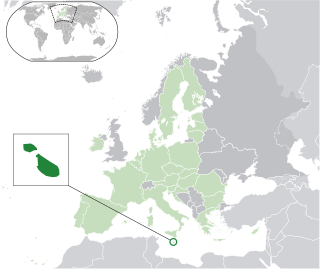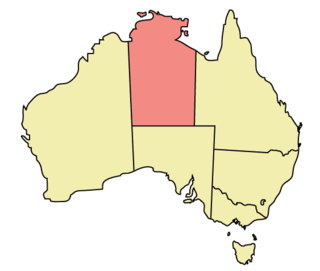Same-sex couples in the United Kingdom (not including Scotland) have had the right to adopt since 2002, following the Adoption and Children Act 2002.
| Part of a series on |
| LGBT rights in the United Kingdom |
|---|
 |
| By location |
| Policy aspects |
| Legislation |
| Culture |
| Organisations |
| History |
Same-sex couples in the United Kingdom (not including Scotland) have had the right to adopt since 2002, following the Adoption and Children Act 2002.
In the Adoption and Children Act 2002, Parliament provided that an application to adopt a child in England and Wales could be made by either a single person or a couple. The previous condition that the couple be married was dropped, thus allowing a same-sex couple to apply. The Lords rejected the proposal on one occasion before it was passed. Supporters of the move in Parliament stressed that adoption was not a "gay right", but one of providing as many children as possible with a stable family environment, rather than seeing them kept in care. Opponents raised doubts over the stability of relationships outside marriage, and how instability would impact on the welfare of adopted children. Similar legislation was adopted in Scotland, which came into effect on 28 September 2009. [1] [2]
The introduction of the Equality Act (Sexual Orientation) Regulations on 30 April 2007 was controversial and a dispute arose between the Government and the Roman Catholic Church in England and Wales over exemptions for Catholic adoption agencies. [3] Archbishop Vincent Nichols of Birmingham declared his opposition to the legislation, saying that it contradicted the Catholic Church's "moral values". He supported efforts to have Catholic adoption agencies exempted from sexual orientation regulations, which were ultimately successful in a judgement given on 17 March 2010. [4]
In 2016, 9.6% of all adoptions in England involved same-sex couples. This was an increase from 8.4% the previous year. [5] In 2018, about 450 of the 3,820 adoptions (about 12%) in England involved same-sex couples.
This is a list of notable events in the history of LGBT rights that took place in the year 2003.
Same-sex adoption is the adoption of children by same-sex couples. It may take the form of a joint adoption by the couple, or of the adoption by one partner of the other's biological child.
Civil partnership in the United Kingdom is a form of civil union between couples open to both same-sex couples and opposite-sex couples. It was introduced via the Civil Partnership Act 2004 by the Labour government. The Act initially permitted only same-sex couples to form civil partnerships, but the law was expanded to include opposite-sex couples in 2019.
The right to freedom of religion in the United Kingdom is provided for in all three constituent legal systems, by devolved, national, European, and international law and treaty. Four constituent nations compose the United Kingdom, resulting in an inconsistent religious character, and there is no state church for the whole kingdom.

Attitudes in Ireland towards lesbian, gay, bisexual, and transgender (LGBT) people are among the most liberal in the world. Ireland is notable for its transformation from a country holding overwhelmingly conservative attitudes toward LGBT issues, in part due to the opposition by the Roman Catholic Church, to one holding overwhelmingly liberal views in the space of a generation. In May 2015, Ireland became the first country to legalise same-sex marriage on a national level by popular vote. The New York Times declared that the result put Ireland at the "vanguard of social change". Since July 2015, transgender people in Ireland can self-declare their gender for the purpose of updating passports, driving licences, obtaining new birth certificates, and getting married. Both male and female same-sex sexual activity have been legal in the state since 1993. Government recognition of LGBT rights in Ireland has expanded greatly over the past two decades. Homosexuality was decriminalised in 1993, and most forms of discrimination based on sexual orientation are now outlawed. Ireland also forbids incitement to hatred based on sexual orientation.

The rights of lesbian, gay, bisexual, and transgender (LGBT) people in the United Kingdom of Great Britain and Northern Ireland have varied over time. Today, LGB rights are considered to be advanced by international standards. However, the country has developed an increasingly negative reputation regarding the status of transgender rights.
The legal status of same-sex marriage has changed in recent years in numerous jurisdictions around the world. The current trends and consensus of political authorities and religions throughout the world are summarized in this article.

Lesbian, gay, bisexual and transgender (LGBT) rights in Malta rank among the highest in the world. Throughout the late 20th and early 21st centuries, the rights of the LGBT community received more awareness and same-sex sexual activity was legalized on 29 January 1973. The prohibition was already dormant by the 1890s.

Lesbian, gay, bisexual, and transgender (LGBT) rights in the British Crown dependency of the Isle of Man have evolved substantially since the early 2000s. Private and consensual acts of male homosexuality on the island were decriminalised in 1992. LGBT rights have been extended and recognised in law since then, such as an equal age of consent (2006), employment protection from discrimination (2006), gender identity recognition (2009), the right to enter into a civil partnership (2011), the right to adopt children (2011) and the right to enter into a civil marriage (2016).

The Equality Act Regulations 2007 was secondary legislation in the United Kingdom, outlawing discrimination in the provision of goods, facilities, services, education and public functions on the grounds of sexual orientation.

Lesbian, gay, bisexual and transgender (LGBT) rights have evolved significantly in the past decades in the British Overseas Territory of Gibraltar. Same-sex sexual activity has been legal since 1993 and the age of consent was equalised to 16 in 2012. The Supreme Court of Gibraltar ruled in April 2013 that same-sex couples have the right to adopt. Civil partnerships have been available to both same-sex and opposite-sex couples since March 2014, and in October 2016, Gibraltar voted to legalise same-sex marriage with the Civil Marriage Amendment Act 2016 passing unanimously in Parliament. The law received royal assent on 1 November and took effect on 15 December 2016.

Lesbian, gay, bisexual, transgender (LGBT) rights in Scotland are generally in line with the rest of the United Kingdom, which have evolved extensively over time and are now regarded as some of the most progressive in Europe. In both 2015 and 2016, Scotland was recognised as the "best country in Europe for LGBTI legal equality".
Adoption in Australia deals with the adoption process in the various parts of Australia, whereby a person assumes or acquires the permanent, legal status of parenthood in relation to a child under the age of 18 in place of the child's birth or biological parents. Australia classifies adoptions as local adoptions, and intercountry adoptions. Known child adoptions are a form of local adoptions.

Lesbian, gay, bisexual, and transgender (LGBT) persons in the Australian state of New South Wales have most of the same rights and responsibilities as heterosexual cisgender people.

This article details the history of the LGBT rights movement in Australia, from the colonial era to the present day.
Law in Australia with regard to children is often based on what is considered to be in the best interest of the child. The traditional and often used assumption is that children need both a mother and a father, which plays an important role in divorce and custodial proceedings, and has carried over into adoption and fertility procedures. As of April 2018 all Australian states and territories allow adoption by same-sex couples.

Lesbian, gay, bisexual, and transgender (LGBT) persons in Australia's Northern Territory enjoy the same legal rights as non-LGBT residents. The liberalisation of the rights of lesbian, gay, bisexual and transgender (LGBT) people in Australia's Northern Territory has been a gradual process. Homosexual activity was legalised in 1983, with an equal age of consent since 2003. Same-sex couples are recognised as de facto relationships. There was no local civil union or domestic partnership registration scheme before the introduction of nationwide same-sex marriage in December 2017, following the passage of the Marriage Amendment Act 2017 by the Australian Parliament. The 2017 Australian Marriage Law Postal Survey, designed to gauge public support for same-sex marriage in Australia, returned a 60.6% "Yes" response in the territory. LGBT people are protected from discrimination by both territory and federal law, though the territory's hate crime law does not cover sexual orientation or gender identity. The territory was the last jurisdiction in Australia to legally allow same-sex couples to adopt children.

The Adoption and Children Act 2002 is a law that allows unmarried or married people and same-sex couples in England and Wales to adopt children. The reforms introduced in the Act were based on a comprehensive review of adoption and were described by The Guardian as "the most radical overhaul of adoption legislation for almost 30 years".
The political activity of the Catholic Church on LGBT issues mainly consists of efforts made by the Catholic Church to support or oppose civil government legislation on issues of importance to LGBT people. The Church generally condemns all forms of violence against gay and lesbian people. However, the Church in certain countries has occasionally resisted efforts to decriminalize homosexuality or to introduce measures to tackle discrimination. The Catholic Church also supports legally defining marriage in civil legislation as the union of one man and one woman, therefore generally opposing efforts to introduce gay civil unions and gay marriage – although some clergymen have expressed support for same-sex unions. The Church teaches that not all discrimination is "unjust," and that discrimination against gay people in some spheres of life serves the common good.